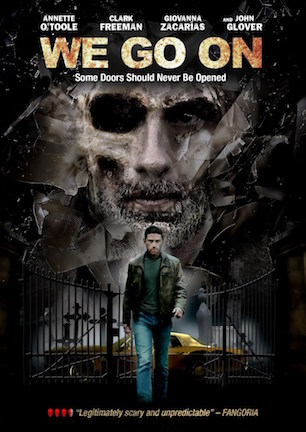Studio: Blumhouse/Universal
Director: Leigh Whannell
Writer: Leigh Whannell
Producer: Jason Blum, Kylie Du Fresne
Stars: Elisabeth Moss, Aldis Hodge, Storm Reid, Harriet Dyer, Michael Dorman, Oliver Jackson-Cohen
Review Score:
Summary:
A sociopathic entrepreneur uses invisibility technology to psychologically and physically torment his ex-girlfriend.
Review:
It’s weird that “The Mummy” (review here) had to die for “The Invisible Man” to live. Universal Pictures invested a great deal of time and money architecting their ‘Dark Universe’ only for the concept to collapse after just one film. Had the Tom Cruise blockbuster not bombed, there’s no way they would have greenlit Blumhouse’s comparatively tiny 2020 thriller, which by all accounts is a commercial, critical, and creative success.
It’s almost as though horror fans want to see Universal’s classic monsters contemporized in the same vein of scary, scaled-back B-movies that made them popular in the first place, not reimagined as MCU-inspired, FX-heavy action spectacles. Who would have thought?
I assumed I’d end up writing an introduction about this take on “The Invisible Man,” where a sociopathic scientist uses stealth technology to clandestinely upend his ex-girlfriend’s life, being a timely treatise on toxic masculinity for the MeToo era. The movie released during the same month when disgraced producer Harvey Weinstein was finally convicted for sexually assaulting actresses intimidated by his power. One week earlier, a woman once engaged to a noted game show host was strangled in her Hollywood home and thrown off a balcony to her death by an abusive ex. Her killer shamefully invoked the ’50 Shades of Gray defense’ to explain the murder as rough sex gone wrong.
The tragic truth of the matter is there’s nothing dated about “The Invisible Man’s” harrowing horror of secret stalking, fear-fueled mind control, and persistent cycle of danger. That’s the first reason why the scenario the film presents, despite being tethered to frightful sci-fi fantasy, always feels terrifyingly realistic. The mental unraveling experienced by Cecilia (Elisabeth Moss) while everyone in her orbit questions her seemingly crazy claims is an everyday reality for many people. This unfortunately means the movie will remain relevant no matter what year the calendar says it is.
Symbology stays subtle so there’s no need to even notice it should straightforward suspense be a viewer’s only interest. Twice Cecilia gets presented with paperwork, a pen, and an attorney’s assurance that her signature will make her problems vanish. Consciously or unconsciously on writer/director Leigh Whannell’s part, how can this be anything other than a parallel to a restraining order, a tactile promise of protection that’s about as effective at being a wall as a handful of sand?
Presented from a more pedestrian perspective that can be commonplace when big studios make theatrical horror disposable, “The Invisible Man” could have been another rote “is this happening or is it all in her head?” non-mystery. Whannell doesn’t waste time testing our tolerance for tropes though. Whannell instead puts his movie’s cards on the table early so he can invert clichéd concepts to mold something much more entertaining as maddening psychological suspense.
“The Invisible Man” deftly demonstrates how casually creeping around and flinching at shadows can be authentically unnerving. Tension exists inherently in the premise of Cecilia’s “he could be anywhere” predicament. Framing constantly compels your eyes to dart around the screen while your imagination turns single sounds into spooks and empty spaces into unknown threats.
I can only come up with one moment that qualifies as a jump scare (it involves paint), but I consider that shot motivated by the scene’s context. These aren’t hollow sequences of tiptoeing toward a doorknob by candlelight. “The Invisible Man” designs its dread to frustrate you with ongoing uncertainty, accurately emulating our heroine’s plight in the process.
There’s no better working actress capable of performing without a partner who is as emotionally engaging as Elisabeth Moss. Capably conditioned by similar work throughout several seasons of “The Handmaid’s Tale,” Moss accordions between vulnerable and vicious by putting haggard miles onto her face to convey tearful breakdowns, then surgically pulling them off when the role requires confident resilience. Her solo skills, a necessity here since so many scenes involve reacting to nothing or interacting with emptiness, make Moss consistently watchable no matter what she is doing.
You could be critical and argue that the Invisible Man isn’t created equal as a character. The only real background given on him comes mostly from Cecilia’s mouth. You’d be wrong to argue that slim backstory waters down his villainy though. Whannell’s succinct script takes inspiration from John Carpenter’s original intentions for Michael Myers. This boogeyman deliberately becomes a faceless force of despicable evil. More malevolent menace than man, he doesn’t demand additional development for the purpose he provides.
Talking technically, Whannell repeats himself by reusing “Upgrade’s” (review here) whirling camera for “The Invisible Man’s” fisticuff and faceoff action. Simplified tactics fill in the rest of the film since setups generate goosebumps from less complicated choreography. Streamlining scares allows “The Invisible Man” to gain great mileage out of slow pans to dark doorways and close-up cutaways of ordinary sights that immediately appear ominous.
The film is totally tense from the very first post-title shot, only intermittently feeling the brief burn of a surprisingly lengthy two-hour runtime. The lesson to be learned here is that when a concept returns to its roots to focus on relatable fears, a horror story can be thematically relevant as well as thoroughly riveting. Sorry, Ahmanet. The Dark Universe’s loss is definitely a fright film fan’s gain.
Review Score: 90







“Sting” delivers spider-centric chills like Joe Dante does horror, except with more entertainment-minded wickedness than family-friendly whimsy.